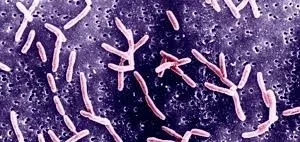A boy's difficulty holding a pencil led to a startling discovery in Pune, India. His mother initially thought he was angry, but the struggle signaled something far more serious - Guillain-Barre Syndrome (GBS).
The rare condition attacked his immune system, causing widespread paralysis. He lost control of his arms, legs, and breathing, requiring ventilator support. The child represents one of 160 GBS cases reported in Pune since January. Five suspected deaths occurred, with 48 patients in intensive care and 21 on ventilators.
GBS symptoms begin with tingling in hands and feet before progressing to muscle weakness. The condition typically worsens over two to four weeks, with mortality rates between 3% and 13%.
Experts trace the Pune outbreak to campylobacter jejuni, a common foodborne infection. Scientists first identified this connection in 1990s rural China, where the bacteria thrived in poultry and spread through contaminated water during monsoon seasons.
Research from the National Institute of Mental Health and Neurosciences in Bangalore showed frequent GBS cases in India. Their five-year study found that 79% of patients had prior infections, with one-third testing positive for campylobacter.
Similar outbreaks emerged worldwide. Peru reported over 200 cases in early 2023, prompting a national health emergency. Two-thirds of these cases are linked to campylobacter.
The risk remains relatively rare. Scientists estimate only one in 10,000 people develops GBS after campylobacter exposure. The bacteria must carry a specific molecular structure matching human nerve cells to trigger the condition.
Treatment options focus on managing symptoms. Doctors use plasma exchange to remove harmful antibodies and administer intravenous immunoglobulin to reduce disease severity. Diagnosis proves challenging, as symptoms mirror other neurological conditions.
Public health officials in Pune responded with extensive measures. They surveyed 60,000 homes, tested water samples, and advised residents to boil water and avoid undercooked meat. The World Health Organization joined local authorities to track and analyze cases.
The source of the Pune outbreak remains under investigation. Experts point to two possible causes: contaminated water supplies or infected poultry. Health officials urge calm as they work to contain the spread and treat affected patients.
The rare condition attacked his immune system, causing widespread paralysis. He lost control of his arms, legs, and breathing, requiring ventilator support. The child represents one of 160 GBS cases reported in Pune since January. Five suspected deaths occurred, with 48 patients in intensive care and 21 on ventilators.
GBS symptoms begin with tingling in hands and feet before progressing to muscle weakness. The condition typically worsens over two to four weeks, with mortality rates between 3% and 13%.
Experts trace the Pune outbreak to campylobacter jejuni, a common foodborne infection. Scientists first identified this connection in 1990s rural China, where the bacteria thrived in poultry and spread through contaminated water during monsoon seasons.
Research from the National Institute of Mental Health and Neurosciences in Bangalore showed frequent GBS cases in India. Their five-year study found that 79% of patients had prior infections, with one-third testing positive for campylobacter.
Similar outbreaks emerged worldwide. Peru reported over 200 cases in early 2023, prompting a national health emergency. Two-thirds of these cases are linked to campylobacter.
The risk remains relatively rare. Scientists estimate only one in 10,000 people develops GBS after campylobacter exposure. The bacteria must carry a specific molecular structure matching human nerve cells to trigger the condition.
Treatment options focus on managing symptoms. Doctors use plasma exchange to remove harmful antibodies and administer intravenous immunoglobulin to reduce disease severity. Diagnosis proves challenging, as symptoms mirror other neurological conditions.
Public health officials in Pune responded with extensive measures. They surveyed 60,000 homes, tested water samples, and advised residents to boil water and avoid undercooked meat. The World Health Organization joined local authorities to track and analyze cases.
The source of the Pune outbreak remains under investigation. Experts point to two possible causes: contaminated water supplies or infected poultry. Health officials urge calm as they work to contain the spread and treat affected patients.












